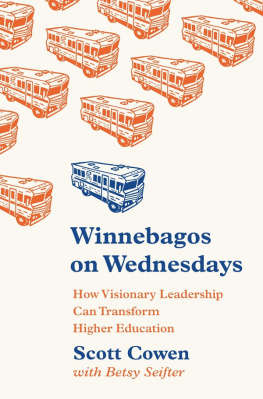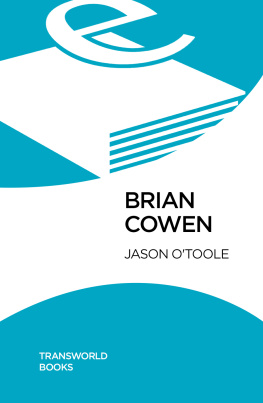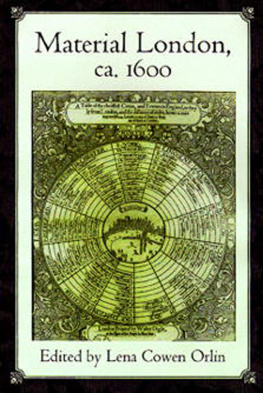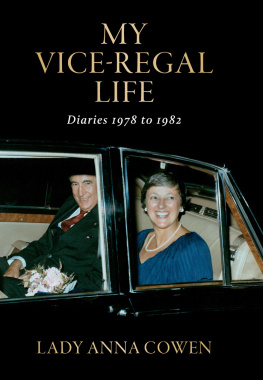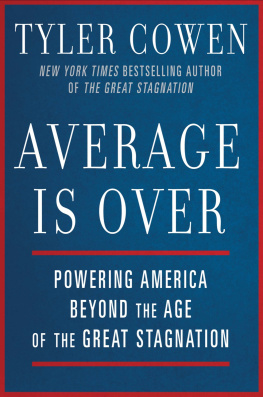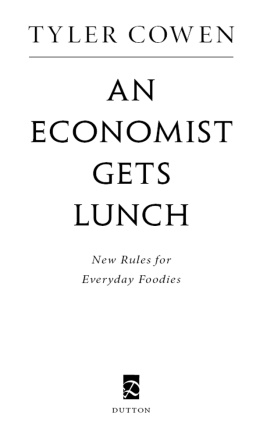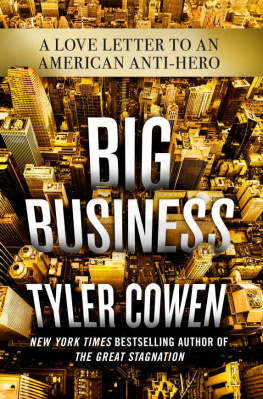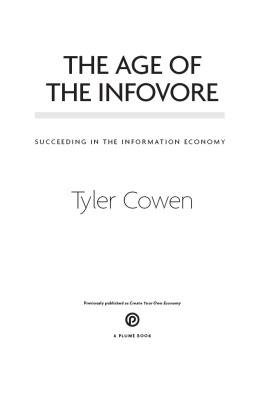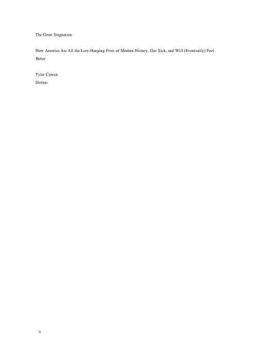Winnebagos
on Wednesdays
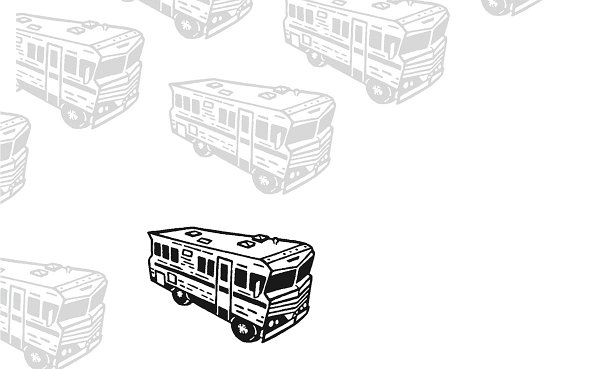
Winnebagos
on Wednesdays
How Visionary Leadership Can
Transform Higher Education
Scott Cowen
with Betsy Seifter
Princeton University Press Princeton and Oxford
Copyright 2018 by Princeton University Press
Published by Princeton University Press,
41 William Street, Princeton, New Jersey 08540
In the United Kingdom: Princeton University Press,
6 Oxford Street, Woodstock, Oxfordshire OX20 1TR
press.princeton.edu
Jacket art courtesy of CSA Images
All Rights Reserved
ISBN 978-0-691-17461-7
British Library Cataloging-in-Publication Data is available
This book has been composed in Plantin Std
Printed on acid-free paper.
Printed in the United States of America
10 9 8 7 6 5 4 3 2 1
I dedicate this book to my precious grandchildren
Louise, Toby, Henry, Joey, and Mara.
I hope they will have the opportunity to grow and
develop through higher education and lead a life of
fulfillment, kindness, and happiness.
Contents
Acknowledgments
My motivation for writing this book emanates from my deep commitment to higher education as a transformative experience for those fortunate to experience it. In my mind, immersing oneself in life and learning in a college environment creates personal and professional opportunities that are hard to come by in any other settingits impact and value are boundless. I hope this book will advance the dialogue about the current state of higher education and its future by focusing on a series of key issues that are shaping the education sector.
This book would never have become a reality without the valuable assistance and contributions of many people. At the very top of my list of those who significantly contributed to this effort are Betsy Seifter, acknowledged on the title page, and Heide Winston, my director of communications and civic engagement at Tulane.
Betsy is a superb writer and editor with a true gift for words. She has an endless curiosity and passion for knowledge, which inspired me to think more broadly and deeply on many of the topics covered in this book. Her unique insights were invaluable in shaping all aspects of the final product.
Heide is an outstanding researcher and fact finder whose remarkable editorial skills and thoughtfulness aided this project tremendously. Heides work is impeccable, and she and Betsy were formidable team members in shaping the content and tone of this book. Winnebagos on Wednesdays would still be a figment of my imagination if Betsy and Heide were not involved.
During my time at Tulane I have been blessed to work with remarkable individuals, many of whom provided valuable guidance and assistance in the preparation of this book. Chief among them has been Michael Bernstein, Tulanes former provost, who read the entire manuscript and offered invaluable comments and insights. Michael is an outstanding provost (now at Stony Brook) and scholar. Other current and former Tulane colleagues who provided valuable assistance were Katie Busby, Barbara Moely, Amanda Kruger Hill, Amy Barad, Nicole Jolly, Earl Retif, Mike Goodman, Becky Ancira, Mike Hogg, Jeff Schiffman, Faye Tydlaska, Roger Dunaway, John Christie, Laura Levy, James Stofan, Ana Lopez, Agnieszka Nance, Johanna Gilligan, Rebecca Otten, Anne Baos, Yvette Jones, and Kathleen Kent.
Tom Burish, provost at the University of Notre Dame and former president of Washington and Lee University, also read and commented on several chapters in the book. His comments were always insightful and helpful as we did subsequent edits of the manuscript. Debbie Bial, the founder and CEO of the Posse Foundation, was generous with her time in describing Posses genesis and philosophy.
Karen Oye, Sue Nartker, and Laura Watt, all former colleagues of mine at Case Western Reserve University, helped refresh my memory of referenced topics related to my time in Cleveland and at CWRU as a professor and dean. Elisabeth Hahn, a doctoral student at Harvard, and Tim Miller, a doctoral student at George Washington University, interviewed me for their respective dissertations about my Katrina experience and forwarded their interview transcripts, which were useful in recalling details from Katrina.
Our initial book proposal greatly benefited from comments by Mary Amicucci and her team at Barnes & Noble. Their comments sharpened all aspects of the project and pointed me to Princeton University Press as a possible publisher.
Peter Dougherty, director of Princeton University Press, and his assistant editor, Jessica Yao, guided and supported me throughout the publication process. I want to offer a special thank you, as well, to Lauren Lepow, whose meticulous copyediting strengthened the book immeasurably. It has been a delight to work with Princeton University Press.
Even though this project has truly been a team effort, I accept all responsibility for the views represented herein and any flaws you may detect.
Finally, I want to thank my wife, Marjorie, for her unwavering support of me throughout my career. She is a remarkable person who keeps me grounded and reminds me to have a life outside of my work. Whatever professional successes I have had in my career are in large part attributable to Marjorie. She has always been my most honest critic.
 Introduction
IntroductionHeres the situation: Ive just offered our talented football coach, Tommy Bowden, a higher salary than hes been offered by Clemson University, which has a Goliath of a program compared to Tulanes David. True, were coming off an undefeated season, but thats an extremely rare event at Tulanethe last time was sixty-nine years agoand I want to keep him. With this offer on the table, I feel I have a shot at it.
Tommy is clearly taken aback. He says, Its not the money. You cant give me what I want.
What do you want?
Winnebagos on Wednesday.
Say again?
Tommy explains: I want a school where the program is so great, people start bringing their Winnebagos on Wednesdayfor the Saturday game.
And I thought: So this is what weve come to. Tulane, a major research university, is somehow, for various crazy reasons, involved in the entertainment businessand were not on the A-list.
Ive carried that story in my head for over eighteen years; it comes to mind every time Im confronted by one of those situations that feel both insoluble and also faintly ludicrous. The Winnebagos story raises, in highly condensed form, a fundamental question: What is the ultimate purpose of higher education, and how is it changing over time? The long history of higher education in the United States is marked by the singular moment in 1862 when the Morrill Act established the land-grant colleges in every state in the union (later expanded to include the Confederate States and historically black colleges and universities). The Morrill Act created a uniquely American model, very different from the European systems focus on educating professional and military elites. In the United States, the overarching mission of colleges and universities was to prepare masses of young people for meaningful employment and engaged citizenship in a participatory democracy. But over the past hundred years, that original aim has been joined by another mission, the solving of social and global problems through research and innovation. Higher educations challengespoverty, urban decline, income inequality, increasing diversity, racial and gender inequities, job loss, climate change, and a host of other issuesare the nations challenges. The sector cant solve those problems in isolation; public understanding and continued investment of both private and public resources are necessary if the nation is to address its knottiest problems and remain a beacon of enlightened progress in a troubled world.

